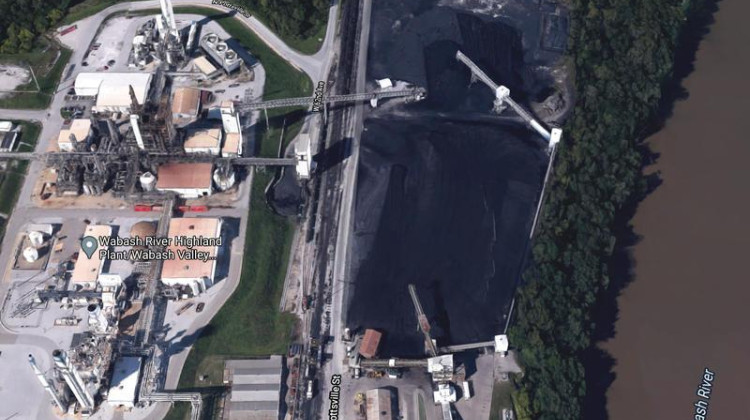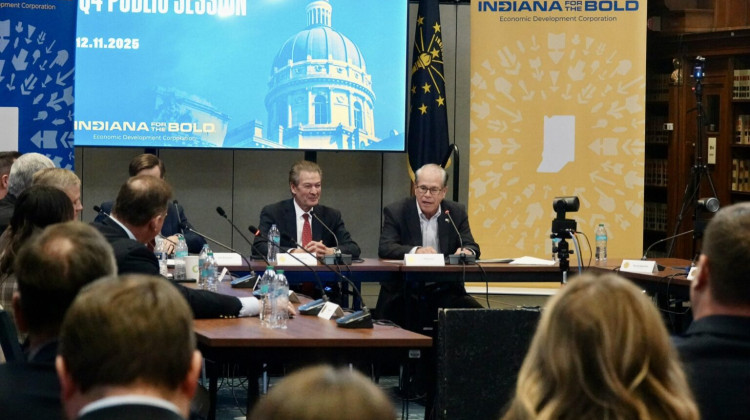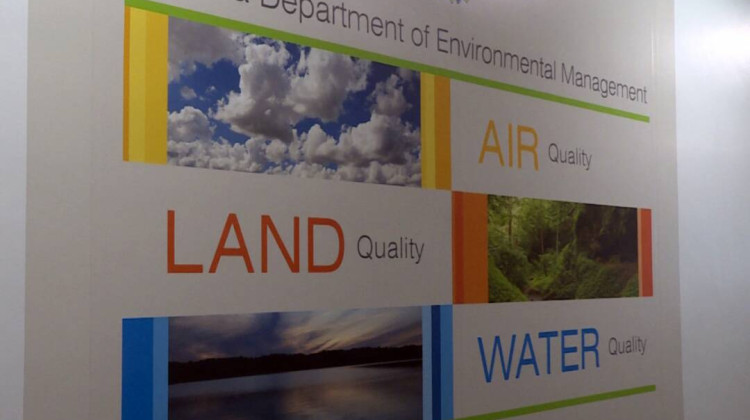
The state pilot program to build an anhydrous ammonia fertilizer plant and then store its CO2 emissions underground was approved by the Indiana legislature about five years ago.
Courtesy of Google MapsA company that wants to store its carbon emissions underground in Vigo and Vermillion counties is closer to securing a critical federal loan for the project. On Monday, the U.S. Department of Energy announced its intent to loan Wabash Valley Resources up to about $1.5 billion.
The state pilot program to build an anhydrous ammonia fertilizer plant and then store its CO2 emissions underground was approved by the Indiana legislature about five years ago.
But now the company’s vice president of external affairs, Greg Zoeller, said WVR has most of the private investment it needs to move the project forward — and the announcement will help secure the rest.
“This is really the last big step that we needed in the process. So this essentially announces that the project will be built out and it'll be operational at least by [20]27 or [20]28," he said.
DOE hopes the plant will reduce the amount of fertilizer the U.S. imports from other countries, bringing down the cost for farmers. It also said the project would revitalize a community that lost jobs with the decline of the coal industry.
Still, the Wabash Valley Resources will have to meet certain requirements to get the loan — like an environmental review. Jigar Shah directs the loan programs office at the DOE.
“One of the things that the secretary of energy has been committed to are making sure that we are not just depending on the company to check with the local community, but that we ourselves are working closely with the local community and other stakeholders to make sure their concerns are heard," he said.
But so far, residents against the project like Susan Strole-Kos feel the government has ignored their concerns about things like pipeline leaks, earthquakes and and CO2 migration.
“We are the community. We're the impacted community. They're going to inject this out where we live — under our houses. And so to me, when we're talking to unions in this, it's just a ploy to push the job issue — that nobody wants to talk about the safety," Strole-Kos said.
A few weeks ago, ADM in Illinois — the only other company with a large CO2 storage project in the U.S. — notified the federal government of a leak earlier this year.
When asked if such a leak could happen at the WVR carbon storage site, Zoeller said its design will have more safety measures in place.
“Our technology is going to be 10 years more robust. So I think we're confident and the people at the [Environmental Protection Agency] were confident in our systems,” he said.
Join the conversation and sign up for the Indiana Two-Way. Text "Indiana" to 765-275-1120. Your comments and questions in response to our weekly text help us find the answers you need on climate solutions and climate change at ipbs.org/climatequestions.
The EPA served ADM with a notice for violating the Safe Drinking Water Act. Though an ADM spokesperson said the leak didn’t affect the groundwater.
Strole-Kos said the DOE also shouldn't consider granting a loan to a project whose injection well permit is under an appeal brought by Vigo County residents through the EPA's Environmental Appeals Board.
The company will also have to develop a community benefits plan. Wabash Valley Resources already presented community benefits plans to Vigo and Vermillion counties. Zoeller said much of what’s in those plans will be in the one presented to DOE — only it won’t include the donor advised funds that he said the company now aims to funnel to community foundations.
Rebecca is our energy and environment reporter. Contact her at rthiele@iu.edu or follow her on Twitter at @beckythiele.
 DONATE
DONATE








 Support WFYI. We can't do it without you.
Support WFYI. We can't do it without you.